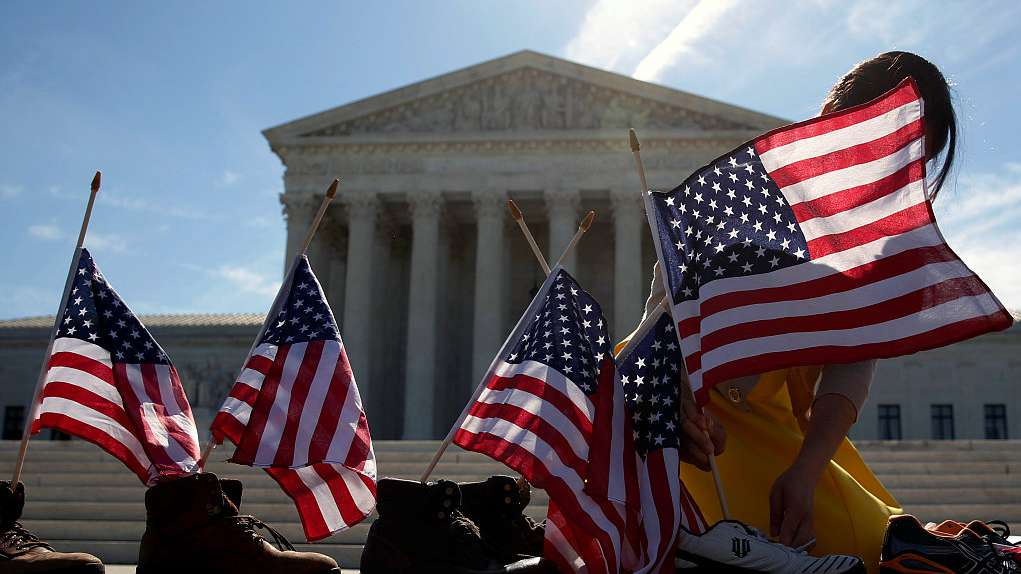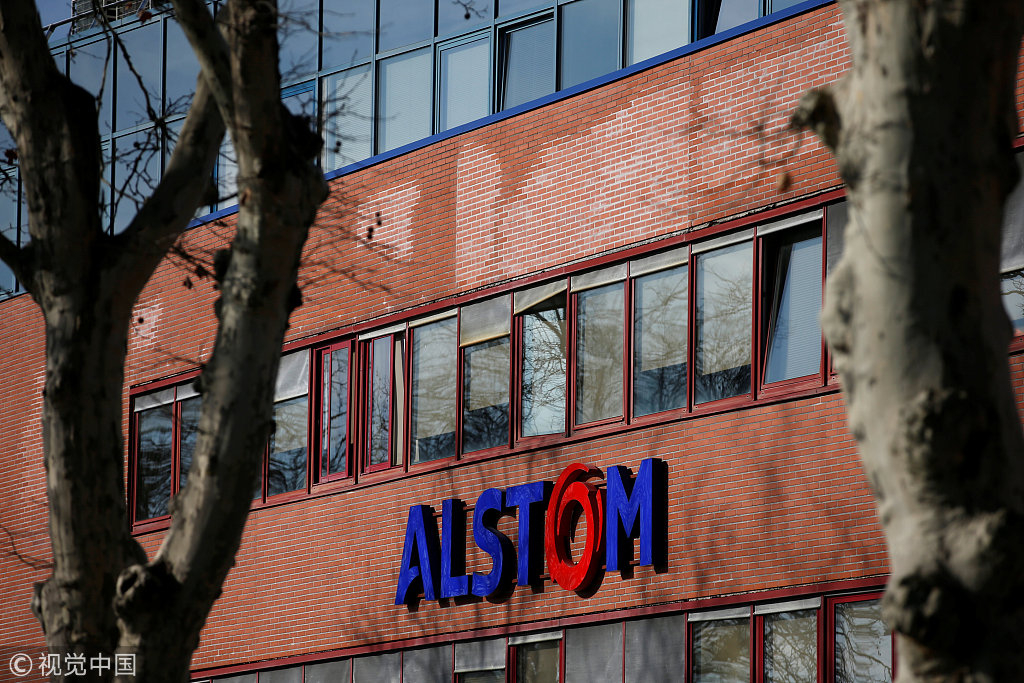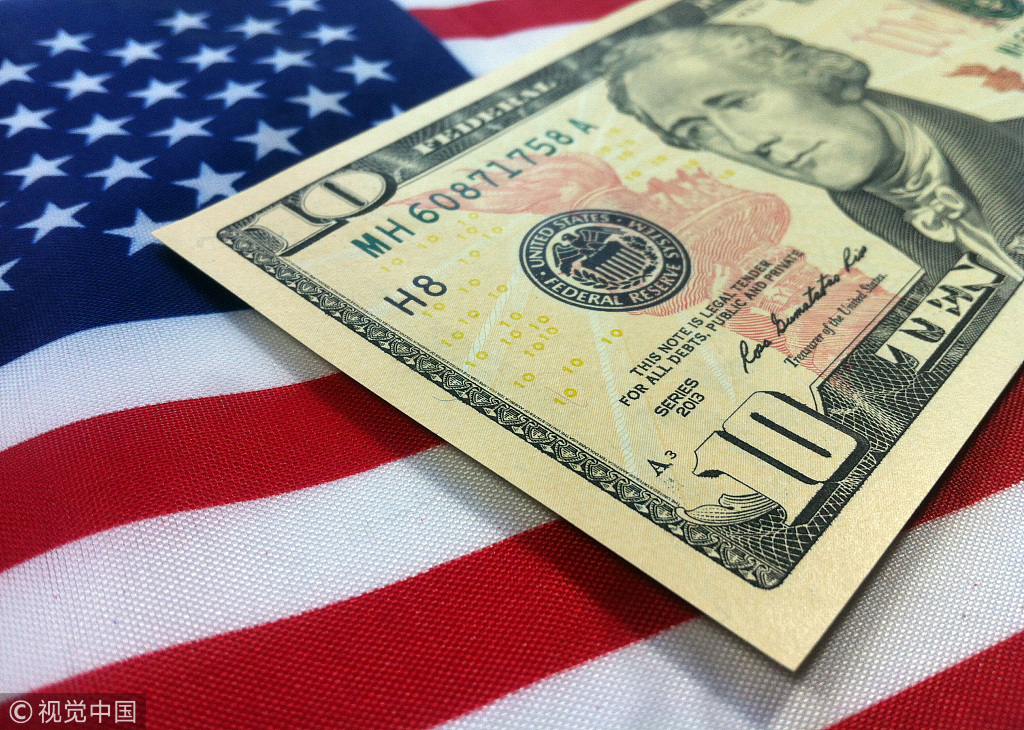
Analysis
21:22, 12-Feb-2019
Analysis: How far is too far when it comes to American hegemony?
Updated
12:52, 13-Feb-2019
Zhao Yuanzhen

Editor's note: The article is based on interviews with Cheng Dawei, a professor at the School of Economics of Renmin University of China and Wang Yong, a professor at the School of International Studies at Peking University. The article reflects the experts' opinions, and not necessarily the views of CGTN.
The U.S. is known for its tough legal system against crime in the business world. And that is supposed to be a good thing until it reaches too far beyond borders and gets on its own allies' nerves.
According to the latest edition of The Economist magazine, it reopened the old wounds of the French company Alstom being taken over by General Electric in 2015, in which it was fined nearly 800 million U.S. dollars. But the case is worth more discussion, as the article argues, because there are various credible sources which can put together an almost complete puzzle to show how America's foreign investigation is intertwined with its own business interest.

The logo of Alstom is seen on the high-speed train TGV factory of the company in Belfort, France, February 6, 2019. /VCG Photo
The logo of Alstom is seen on the high-speed train TGV factory of the company in Belfort, France, February 6, 2019. /VCG Photo
Just like how it became the world's policeman thanks to its strongest military power, dollar hegemony and its economic superiority, that made the U.S. a policeman in the business world too.
Trump was not bluffing when he unilaterally reimposed sanctions on Iran and claimed: “You are going to see how powerful the sanctions are when it comes to Iran.” International gas and oil trade are processed through U.S. dollars, and its status as the world reserve currency gives the U.S. exorbitant leverage over the sanctions it imposed, enough to cause fear among countries of revenge from America more than the economic loss of ending trade deals.
According to the American Foreign Corrupt Practices Act (FCPA), bribery for a business deal is strictly forbidden and could face a large amount of fine, which is to be applauded for the regulatory purpose. But with the Alstom case, it seems rather odd that the U.S. fined a French company, who has bribed in Indonesia because it has a subsidiary on the U.S. soil. And these days business activities using Gmail to communicate already suffice supervision from the U.S.
In an ever more globalized world with dollar hegemony, it sends an unsettling message that the U.S. has made itself the policeman and judge at the same time. It is an uncomfortable thought that the U.S. law system could extend to the world, as any abuse of such power could mean serious disruption to the business world and rot its own internal system.

VCG Photo
VCG Photo
Another issue America's critics have raised is that the U.S. seemed to have punished foreign companies disproportionately in favor of its domestic companies. According to a consultancy named Fenergo, more than three-quarters of its 25 billion dollars fine has been against European banks which paid more than 100 million dollars.
"It's not just the dollar hegemony", Cheng Dawei, a professor at the School of Economics, Renmin University of China, points out the U.S. already has a mature legal and administrative system that could enable the U.S. to use non-market strategy to serve its domestic business interest.
When an American company enters a foreign market, it sometimes will request law change for the benefit of its company as part of the negotiation; when there's intense competition on the global market that could threaten America's dominance in one field, the U.S. would reach its long arm to find "wrongdoings" for prosecution in the court.
"The purpose is to maintain its technology dominance and global competitiveness, and achieve its foreign policy goal in the Iran sanctions case," added Wang Yong, a professor at the School of International Studies at the Peking University.
In either way, it raises the question of challenging countries' sovereignty and unjustified external interference. The extending of Uncle Sam's long arm had already caused backfire when Europe announced that it started to work on a new payment channel that would bypass U.S. sanctions.
In an interview with The Economist, Pierre Gattaz, head of Business Europe expressed Europe's frustration with its ally's arrogance: “European companies are increasingly impacted by the extraterritoriality of U.S. sanctions…moreover, these are increasingly instrumentalized to promote economic interests.”
But even with America's diminishing global power, would other countries succeed in challenging its unfair extraterritorial jurisdiction?
Both Cheng and Wang agree that multilateral cooperation is a core antidote. And countries could use America's logic and adjust their own legal system to reach its long arm to U.S. business as well, such as Europe's laws against unfair competition and monopoly.
(If you want to contribute and have specific expertise, please contact us at opinions@cgtn.com)

SITEMAP
Copyright © 2018 CGTN. Beijing ICP prepared NO.16065310-3
Copyright © 2018 CGTN. Beijing ICP prepared NO.16065310-3